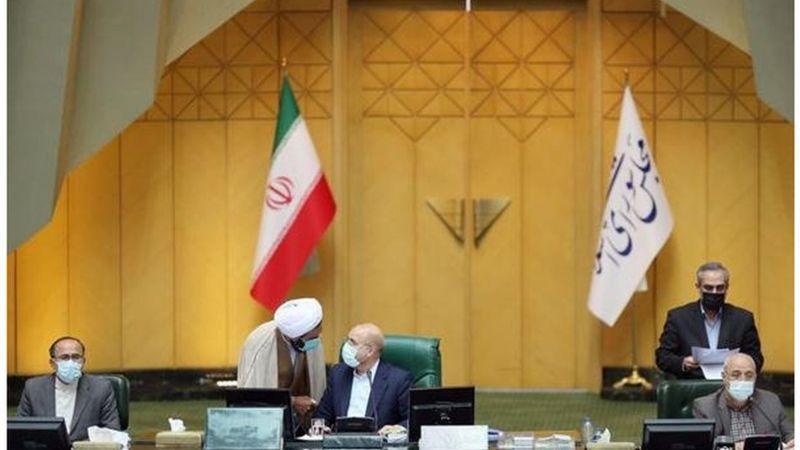At a time when the Iranian ambassador in Baghdad is announcing that a fifth round of negotiations will be held in Baghdad between his country and Saudi Arabia, an unidentified armed group (according to its statement) is launching drones towards the UAE capital, Abu Dhabi.
This is behavior Iran is known for. It says one thing and does the exact opposite. Its language in negotiations is different from its language in reality. Was Europe really at a loss as to the interpretation and understanding of this duality? There is a remarkable amount of exaggeration in European bewilderment. This is because more than forty years of the mullahs’ regime have proven that this regime does what it deems appropriate, regardless of the harm that this action may cause to others.
And he does this at the moment when he feels that the reaction of others will not be strong and that there is a kind of hesitation stemming from the desire of others to avoid an unnecessary war that the region cannot bear. But if the Iranian regime feels that the response will be shocking and violent, it will avoid taking any provocative action, as is the case with Israel. Iran, despite the Israeli strikes against its bases in Syria, has not done anything that could constitute a provocation to Israel. I left it to Assad's rhetoric "the right response at the right time" which means nothing will happen.
As for Iran's agents, they devoted themselves to its other wars, and their aggressive behavior became the embodiment of its dual behavior. Its negotiations with Saudi Arabia, which are not disengagement negotiations, cannot be isolated, but primarily political negotiations, from the war it is waging against the UAE from the south, where the Houthis are, and from the north, where the Iraqi militias affiliated with its Revolutionary Guards. The UAE is a strategic partner for Saudi Arabia, and the security of the two countries can only be one.

Are the Iranian drones that were directed at the UAE a message to Saudi Arabia and are they part of the negotiations? This idea emanates from an absurd, destructive, sick mind that does not see a future for any relationship that can be established with Iran, which is a state of permanent war. It is not necessary to know its causes, but its objectives are clear. Spreading panic in the region in order to maintain a state of stability that would enhance its influence in countries that were able to fill the void that resulted from the collapse of national concepts in them.
Iran wants to put pressure on Saudi Arabia through an indirect war that it wages through its proxies against the UAE. At the same time, it seeks to put pressure on the United States in the Vienna talks, by making it aware that its nearby interests are threatened with targeting, since they came under the fire of the militias. Certainly, it is Iran's stupidity in understanding the world that prompts the mullahs' state to take risks, believing that the world does not hold it responsible for the aggressive actions of its proxies.
It is not important from where Iranian missiles and drones are launched to target this or that Arab country. Iraq, for example, is not at war with the UAE. The presence of a weak government in it does not explain the fact that an armed group bombed the Emirates. If Iran had not provided that group with the weapons it used to target the UAE, that group would not have been able to commit its crime. Just as the question about the target of that crime can be answered in Tehran and not in Baghdad. The Iraqi government did not comment on anything, and this is strong evidence that the issue goes beyond it to be part of Iran's war against others, and it is unable to say its opinion in that war.
Iran's proxies are its front abroad. They fight instead. The Houthis in Yemen, Hezbollah in Lebanon and Syria, and the Popular Mobilization Forces in Iraq. Is it possible to accept a nuclear agreement that does not include proxies and leaves Iran's hand capable of tampering with people's destinies? That is a question for the international community, not just the United States. However, there is a margin for the vitality and will of the people, and it is a margin that Iran will not be able to narrow or play with or distort the results of its effectiveness. The facts say that today the popular crowd is going through a stage of its demise, the collapse of its popular status and its loss of influence. As for Hezbollah, it created a crisis that is greater than it and will not escape its repercussions. This is at a time when the Houthis are losing the initiative on many fronts, and it will be difficult for them to continue bombing the Kingdom's lands or directing marches to the Emirates in light of the threat of returning them to the fold of terrorist groups.
Doesn't this mean that Iran's dual behavior has reached a dead end?
Iran will not reconsider its policy. Therefore, its war against others will not continue by proxy, but rather it will have to face an exceptional situation that will deprive it of movement.
